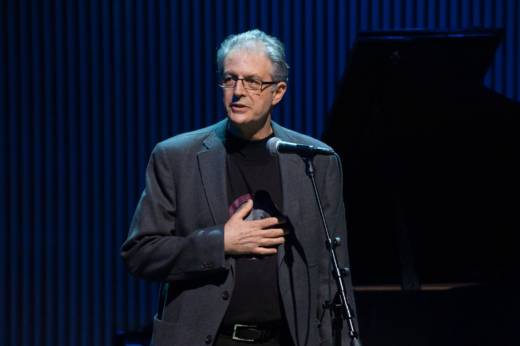It’s time again for the annual Other Minds Festival, this year at ODC Theater in San Francisco: 22 sound poets from five different countries.
Sound poetry? Yes. Hear me out. Or rather, hear artistic director and composer Charles Amirkhanian out: “Sound poetry is the intermediary between composition of music and writing of literature,” he says.
“The approaches to sound poetry vary widely. You have some people who are using purely speech and sometimes just parts of words. Sometimes full sentences. Sometimes, they’re intoning or chanting or singing. But the idea is that, if you read what they’re doing on the page, it wouldn’t be a performance of the word. It has to be heard out loud.”
The week-long festival explores the roots of the movement, from its origins in Italian Futurism, through the German Dadaist movement, and into the radical literature of Austria, France, and the United States.
Among the highlights: the U.S. premiere of the entire three-movement Gesprochene Musik by Ernst Toch. His grandson, writer Lawrence Weschler, has made an arrangement of one movement, the Geographical Fugue, that would probably make his granddad roll in his grave. Instead of “Trinidad, and the big Mississippi and the town Honolulu and Lake Titicaca,” Weschler inserted medical terms into the piece; his new version of the movement starts with “Syphillis!”



